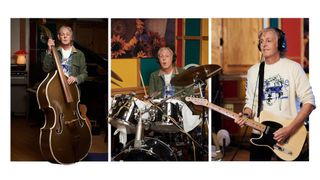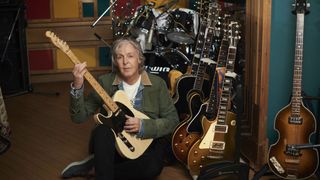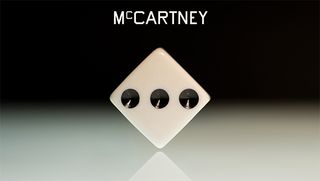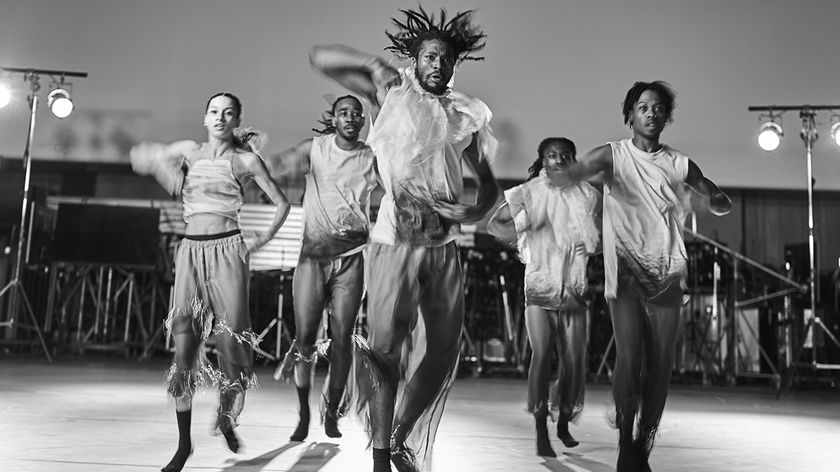Paul McCartney has announced a surprise new album for release on 11 December via Capitol Records – one that he didn't even plan on making at the start of 2020.
McCartney III follows 50 years after his first solo album, the back to basics McCartney in 1970, and 40 years after 1980's experimental McCartney II. So can we expect another bold statement from the third instalment?
The isolation of what McCartney has called “Rockdown” in the COVID pandemic left the icon developing musical ideas and creating fresh pieces on a stripped-back and self-produced record, tracked earlier this year in Sussex.

“I was living lockdown life on my farm with my family and I would go to my studio every day," reveals McCartney. "I had to do a little bit of work on some film music and that turned into the opening track and then when it was done I thought what will I do next?
"I had some stuff I’d worked on over the years but sometimes time would run out and it would be left half-finished so I started thinking about what I had. Each day I’d start recording with the instrument I wrote the song on and then gradually layer it all up, it was a lot of fun. It was about making music for yourself rather than making music that has to do a job. So, I just did stuff I fancied doing. I had no idea this would end up as an album.”
McCartney III is mostly built from live takes of the songwriter on vocals and guitar or piano, then overdubbing his bass playing and drumming.
This self-sufficient way of working began when McCartney returned to an unreleased track from the early 90s, When Winter Comes (co-produced by George Martin).
Get the MusicRadar Newsletter
Want all the hottest music and gear news, reviews, deals, features and more, direct to your inbox? Sign up here.
McCartney wrote a new passage for the song, inspiring McCartney III's opener Long Tailed Winter Bird. Elsewhere, When Winter Comes, featuring its new 2020 intro Winter Bird, became the new album’s "grand finale".

The tracks between are captured with some of the same gear from McCartney's Rude Studio that were used as far back as 1971 Wings sessions. And the vintage goodness continues with Bill Black of Elvis Presley's original trio's double bass alongside McCartney's own iconic Hofner violin bass, and even a mellotron from Abbey Road Studios used on Beatles recordings.
Following McCartney and McCartney II’s photography by the late Linda McCartney, the principal photos for III were shot by McCartney’s daughter Mary McCartney—with additional photography by his nephew Sonny McCartney as well as photos the Beatle took on his phone. The cover art and typography is by celebrated American artist Ed Ruscha.

McCartney III will be released December 11 on Capitol Records across digital platforms, on CD, and on LP manufactured by Third Man Pressing. Vinyl configurations will range from standard 180g to a Third Man Edition of 3,000 hand-numbered red vinyl copies, a ‘333’ Edition sold only via Third Man Records online store and limited to 333 copies on yellow-with-black-dots vinyl created using 33 recycled vinyl copies of McCartney and McCartney II, a U.S. indie retail exclusive pressing of 4,000 hand-numbered white vinyl LPs, and more.
More info: paulmccartney.com

Rob is the Reviews Editor for GuitarWorld.com and MusicRadar guitars, so spends most of his waking hours (and beyond) thinking about and trying the latest gear while making sure our reviews team is giving you thorough and honest tests of it. He's worked for guitar mags and sites as a writer and editor for nearly 20 years but still winces at the thought of restringing anything with a Floyd Rose.

"Reggae is more freeform than the blues. But more important, reggae is for everyone": Bob Marley and the Wailers' Catch a Fire, track-by-track

“Part of a beautiful American tradition”: A music theory expert explains the country roots of Beyoncé’s Texas Hold ‘Em, and why it also owes a debt to the blues










